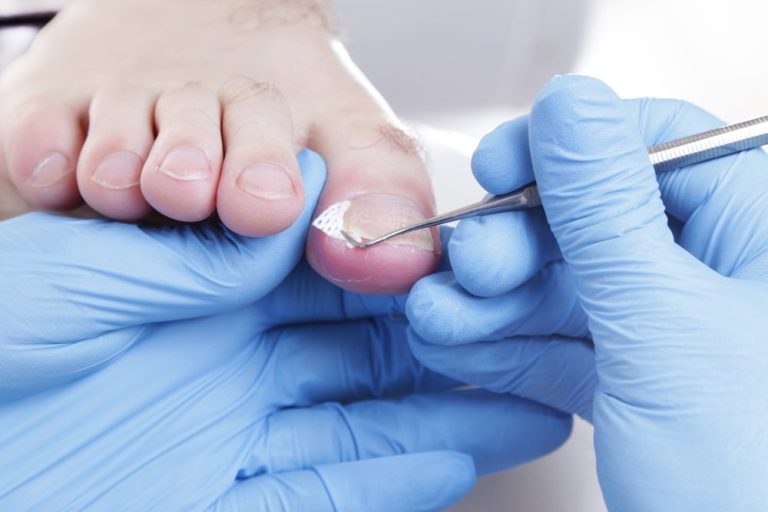Introduction
Have you ever felt a sharp pain in your big toe or other joints that made walking nearly impossible? If you have, you might be dealing with gout, a form of arthritis that can cause sudden and severe pain. But don’t worry, relief is just around the corner. In this article, we will explore how you can find a Gcsp (Greater Chicago Specialty Physicians) gout doctor near you to help manage and treat your condition. We’ll walk you through the steps to find the best specialist, discuss treatment options, and answer some common questions about gout.
Understanding Gout
Gout is like an unwelcome guest that arrives out of nowhere and overstays its welcome. This condition occurs when there is too much uric acid in the blood, leading to the formation of sharp, needle-like crystals in a joint or surrounding tissue. These crystals cause inflammation, swelling, and intense pain. Understanding what gout is and how it affects your body is the first step towards managing it effectively.
Symptoms of Gout
The symptoms of gout can be quite dramatic and often appear suddenly, usually at night. The most common symptom is intense joint pain, often in the big toe, but it can also affect other joints like the ankles, knees, elbows, wrists, and fingers. Along with pain, you might notice redness, swelling, and tenderness in the affected area. The pain can be so severe that even the weight of a bed sheet can seem unbearable.
Causes of Gout
Gout is primarily caused by an excess of uric acid in the blood. This excess can be due to either increased production or decreased elimination of uric acid. Factors that can contribute to high uric acid levels include genetics, obesity, certain medical conditions (like hypertension and diabetes), and lifestyle choices such as a diet high in purines (found in red meat, seafood, and alcohol).
Importance of Seeing a Specialist
When dealing with gout, seeing a specialist is crucial. While general practitioners can provide initial treatment, a rheumatologist (a doctor specializing in arthritis and other diseases of the joints, muscles, and bones) is often better equipped to manage gout. Specialists have a deeper understanding of the disease and can offer more advanced treatment options.
What is Gcsp?
Gcsp stands for Greater Chicago Specialty Physicians, a group of healthcare professionals who specialize in various medical fields, including rheumatology. They provide comprehensive care for patients with complex conditions like gout. The benefit of choosing a Gcsp gout doctor is their expertise and access to the latest treatment options and technologies.
How to Find a Gcsp Gout Doctor Near Me
Finding a Gcsp gout doctor near me can be as simple as a quick online search or asking for a referral from your primary care physician. Here are some steps to help you in your search:
- Online Search: Use search engines and medical directories to find Gcsp gout doctors in your area.
- Referrals: Ask your primary care doctor for a referral to a rheumatologist within the Gcsp network.
- Insurance Provider: Check with your insurance provider for a list of covered specialists in your area.
- Reviews and Ratings: Look for reviews and ratings from other patients to help gauge the quality of care provided.
What to Expect During Your Visit
Your first visit to a Gcsp gout doctor will typically involve a thorough medical history review, physical examination, and possibly some diagnostic tests such as blood tests or imaging studies. The goal is to confirm the diagnosis of gout, assess the severity of your condition, and develop a personalized treatment plan.
Common Treatment Options
Treatment for gout usually involves a combination of medications and lifestyle changes. The primary goals are to relieve pain, reduce inflammation, and prevent future attacks. Here are some common treatment options:
- Nonsteroidal Anti-Inflammatory Drugs (NSAIDs): These help reduce pain and inflammation.
- Colchicine: This medication can reduce gout pain and inflammation, especially if taken soon after symptoms appear.
- Corticosteroids: These are used to control inflammation and pain.
- Urate-Lowering Therapies: Medications like allopurinol and febuxostat reduce uric acid levels in the blood.
Lifestyle Changes to Manage Gout
Managing gout isn’t just about taking medication. Lifestyle changes play a significant role in preventing future attacks and maintaining overall health. Here are some key changes you can make:
- Maintain a Healthy Weight: Obesity is a risk factor for gout. Losing weight can help reduce uric acid levels.
- Stay Hydrated: Drinking plenty of water helps flush uric acid out of your system.
- Limit Alcohol Consumption: Alcohol, especially beer, can increase uric acid levels.
- Exercise Regularly: Regular physical activity can help manage weight and improve overall health.
The Role of Diet in Gout Management
Diet plays a crucial role in managing gout. Certain foods can trigger gout attacks by increasing uric acid levels, while others can help keep it in check. Here’s what to consider:
- Avoid Purine-Rich Foods: Limit intake of red meat, organ meats, and certain seafood.
- Eat Low-Fat Dairy Products: These can help lower uric acid levels.
- Choose Complex Carbohydrates: Opt for whole grains, fruits, and vegetables.
- Limit Sugar: High sugar intake can contribute to obesity and gout.
Medications for Gout Relief
Several medications can help manage gout symptoms and prevent future attacks. These include:
- NSAIDs: Effective for pain relief.
- Colchicine: Reduces inflammation and pain.
- Corticosteroids: Control inflammation.
- Urate-Lowering Therapies: Prevent future attacks by reducing uric acid levels.
Preventing Future Gout Attacks
Preventing gout attacks involves a combination of medication, lifestyle changes, and regular medical check-ups. Here are some tips to help prevent future attacks:
- Take Medications as Prescribed: Follow your doctor’s instructions carefully.
- Monitor Your Diet: Avoid foods that trigger gout attacks.
- Stay Hydrated: Drink plenty of water.
- Maintain a Healthy Weight: Weight management is crucial in preventing gout.
FAQs
1. What is gout and what causes it? Gout is a form of arthritis caused by excess uric acid in the blood, leading to the formation of crystals in the joints.
2. How can I find a Gcsp gout doctor near me? You can find a Gcsp gout doctor by doing an online search, asking for a referral from your primary care physician, or checking with your insurance provider.
3. What treatments are available for gout? Treatment options for gout include NSAIDs, colchicine, corticosteroids, and urate-lowering therapies.
4. Can lifestyle changes help manage gout? Yes, maintaining a healthy weight, staying hydrated, limiting alcohol consumption, and exercising regularly can help manage gout.
5. What foods should I avoid if I have gout? Avoid foods high in purines, such as red meat, organ meats, and certain seafood. Also, limit sugar and alcohol intake.
Conclusion
Gout can be a painful and disruptive condition, but finding the right specialist can make a significant difference in managing and treating it. By following the steps outlined in this article, you can find a Gcsp gout doctor near you who can provide the care and treatment you need. Remember, relief is just around the corner. With the right combination of medication, lifestyle changes, and professional care, you can manage your gout and enjoy a better quality of life.















